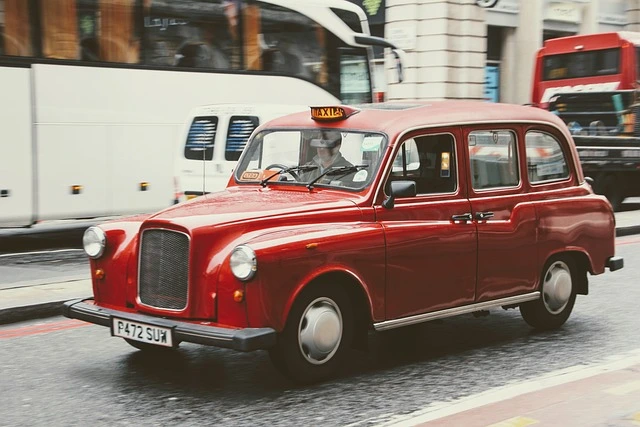The introduction of technology has influenced many sectors across the economy, and the London minicab taxi services in London are not an exception. In the last ten years, both the techniques, as well as the media through which minicabs and taxis can be hired, have shown a tremendous improvement in the comfort of the customers and the drivers. This article describes the development of online Cab booking services in London with an understanding of technology.
The Early Days of Minicab and Taxi Services in London
Taxi services have been in existence in London since the early 17th century and initially, they were horse-drawn carriages known as hackney carriages. One of the most recognizable vehicles all over the world, the ‘black cab,’ was the product of the early decades of the financial capital. Taximeters became widely used in the 1960s, minicabs, which are private hire vehicles that have to be prearranged, are more flexible compared to the famous black cabs.

Before, booking a minicab meant calling an available minicab company in the local area and waiting for a dispatcher to find an available driver to send to the client. The process was frequently a slow one and the service was not very reliable, especially during rush hours. Black cabs, on the other hand, could be hailed directly from the street, however, this method was as unpredictable as the standard one and usually entailed waiting
The Advent of Online Booking Platforms
The change to online bookings started early in the 2000s as the internet connection and smartphone ownership increased. Some of the initial players in the market were organisations such as Addison Lee which created an online booking system whereby customers could hire cars through the use of the Internet. This was a major advance, offering customers an easier and more reliable means of obtaining a car.
While smartphones became widespread, booking applications started appearing, which changed the market significantly. Uber started its operations in London in 2012 with a unique selling proposition of being an application that enabled clients to book their rides, track their rides, and even pay for the ride all through their mobile phones. This model was soon adopted rather swiftly; it would be appropriate for techie Londoners and tourists.
Key Technological Innovations
Several technological innovations have driven the evolution of online cab booking in London. Several technological innovations have driven the evolution of online cab booking in London:
GPS and Real-Time Tracking
One of the technological developments witnessed in the system is the incorporation of GPS technology whereby passengers can physically monitor their taxis’ movements. This has enhanced safety and ease as commuters get details of the estimated time of arrival and get to monitor routes.
Digital Payments
The use of card payment has made it cheaper and easier to make payment for your fares hence poverty is no longer an issue you will encounter. Currently, users can make payments through credit/debit cards as well as through digital wallets in many instances, and there are even bitcoins being accepted in some cases.
Ratings and Reviews
Companies such as Uber and Bolt have introduced aspects like rating systems that ensure quality in the services they offer and also ensure that there is trust between the passenger and the driver. This system proved fruitful in delivering better service and the standards that are hard to challenge.
Dynamic Pricing
They refer to this system as surge pricing and it fluctuates the fare depending on the demand, which guarantees that more people will be using the service during certain times of the day. Although it remains a source of debate, it has been successful in regulating offers and demands.
The Impact on Traditional Taxi Services
The advancement in technology using the internet has affected traditional black cabs in various ways. Features like reliability, availability, and cost-effectiveness of the app hailing services have pulled customers away from the conventional hailing methods. This has put pressure on the black cab market to integrate their applications and skills for digital payments.
To counter the effect of the competition, Transport for London (TfL) has set various codes, rules, and policies to balance the trends. This involves qualified licensing of minicab drivers and passing English language tests among other measures in a bid to offer standard services.
The Role of Regulation
Government initiatives such as regulation have significantly influenced the development of the online cab booking industry in London. TfL is responsible for regulating and issuing licenses to private hire vehicles and the black cab, providing safety and quality. Legislation that signaled a move to modern regulation was the Private Hire Vehicles (London) Act of 1998 which licensed all minicabs and insisted on identity checks for drivers.
In more recent times, TfL has put in place measures for addressing both poor air quality and congestion like the ULEZ. This has helped in increasing the use of minicabs and taxi services near me electric and hybrid cars to enhance transport sustainability.
Conclusion
The variety and availability of online cabs in London have made a drastic shift in the mobility of people and their approach towards transportation. Starting from phone bookings to the advanced booking applications of today, there is ample evidence to show that technological aspects have made our lives much more convenient. Indeed, further advancements in this field can be expected in the future. Keeping in mind the rate at which the industry is evolving and the challenges it is facing, leading to convenient urban transportation in London.
Related Articles:
Minicabs vs Black Cabs London: What You Need to Know
Licensing Requirements for Minicab Drivers in London
The Role of Transport for London (TfL) in Regulating Minicabs
Reporting and Dealing with Safety Concerns or Incidents by Taxi Drivers
